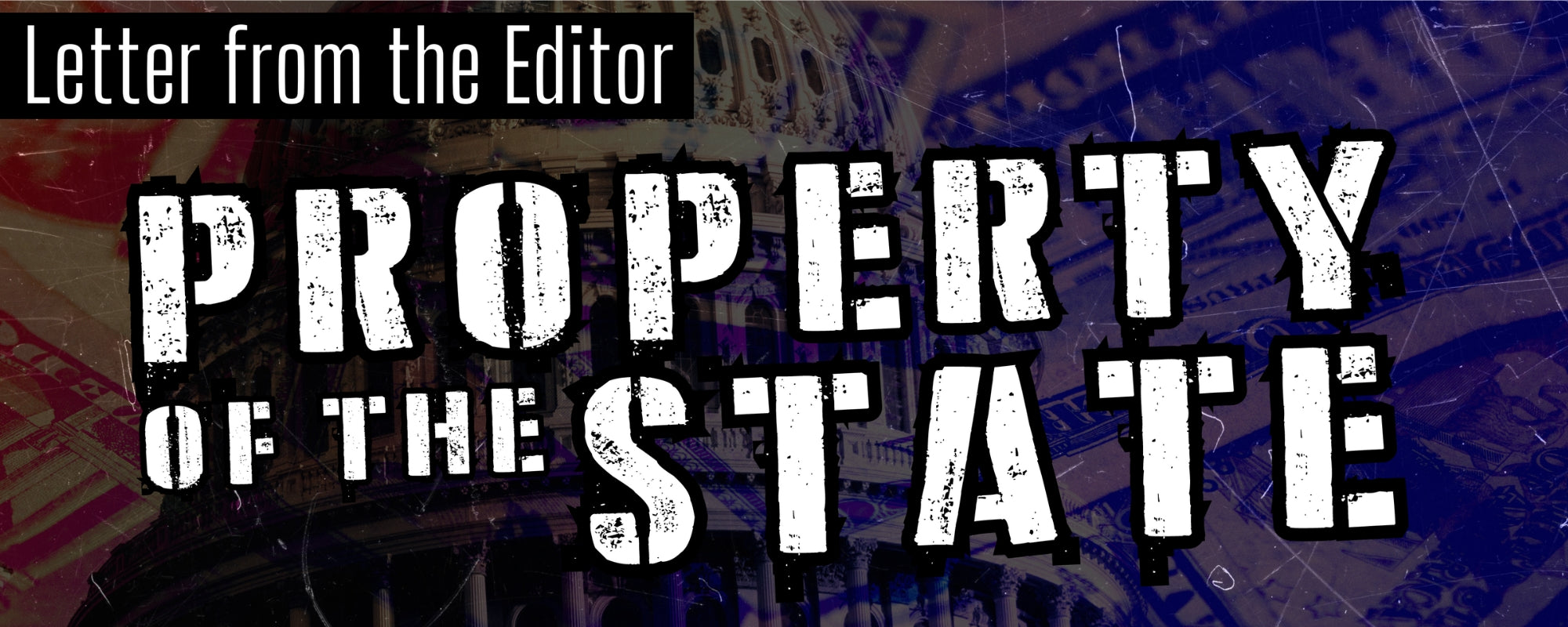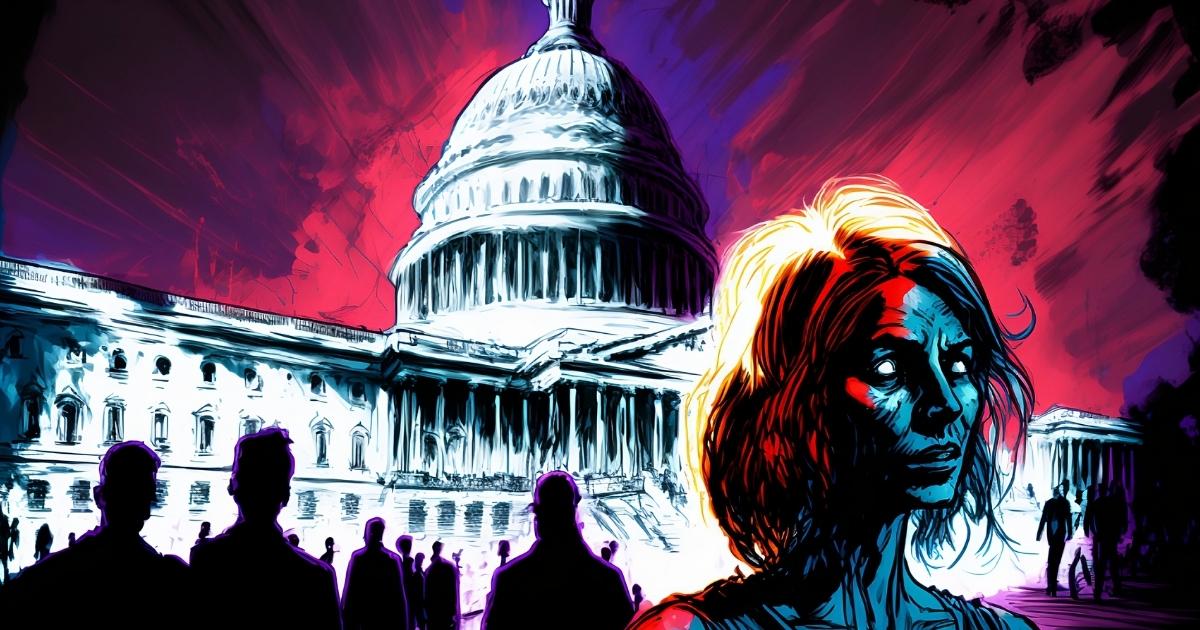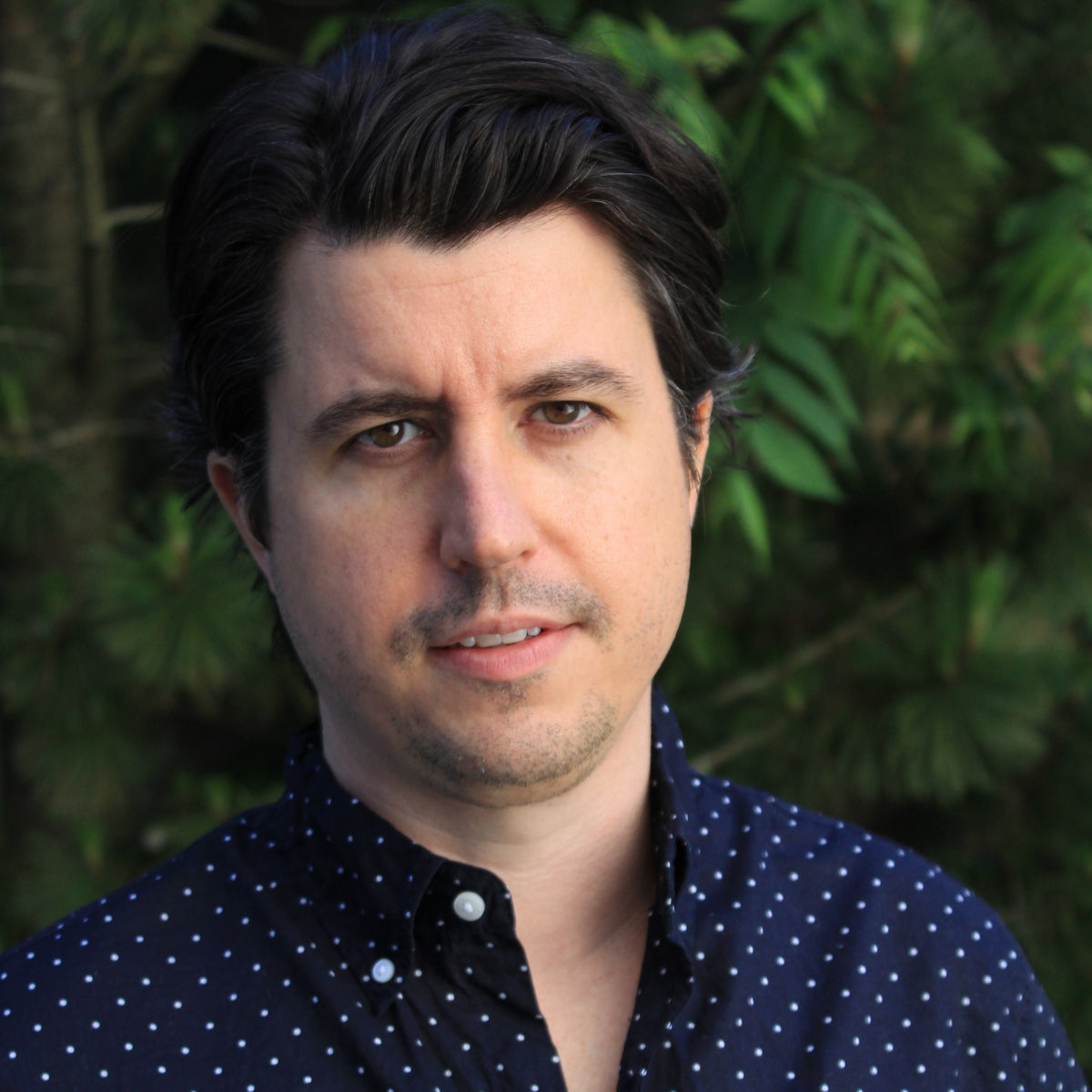

Letter from the Editor: Property of the State
By Rob Carroll
Human capital has always been the most valuable resource on the planet. The collective knowledge, attributes, skills, experience, and health of a nation’s workforce is what determines the prosperity of a nation, economically, culturally, and geopolitically.
And its value is being cheapened by the day.
According to geopolitical strategist and demography expert, Peter Zeihan, in his New York Times-bestselling book The End of the World is Just the Beginning, “2019 was the last great year for the world economy. The world of the past few decades has been the best it will ever be in our lifetime. Instead of cheap and better and faster, we’re rapidly transitioning into a world that’s pricier and worse and slower. Because the world—our world—is breaking apart.”[1] Zeihan’s thesis is based on a number of different factors, but chief among them are acute changes in demography, population decline (especially among economic superpowers), and a dwindling of mineral resources, many of them extremely rare and not easily sourced, like cobalt. Cobalt, along with about a dozen other minerals, like lithium, chromium, and graphite, are used to make electric vehicle batteries and other Green tech. Cobalt also powers smartphones and is used in computer hard drives. It’s estimated to run out or face severe supply shortages sometime between 2028–2033.
As things currently stand, the United States is thirty-two trillion dollars in debt, Social Security is set to run out of money by 2033, the Millennial and Gen-Z generations have the least generational wealth on record (when measured against previous generations at the same age), and the Baby Boom generation is entering retirement at a time when their financial savings may be weakened by a number of factors, including runaway inflation, an overdue stock market correction, the end of the U.S. dollar as the world reserve currency, the destruction of pensions thanks to institutional greed and widespread financial fraud, even trade collapse due to rising political tensions. Something’s got to give, and the people turning the cranks on the machine know this. Bank failures, mass layoffs, credit default swaps on the U.S. Treasury skyrocketing to record highs—these are all flashing neon signs that a significant economic crisis looms right around the corner.
If such a crisis occurs, we have two ways out.
The first way: human capital is once again valued in proportion to the value it creates for society. Human knowledge, skills, and experience lead the way forward. Artificial intelligence, if it continues to grow, will grow responsibly, and will aid human capital, but never replace it. Things will be tough for a while, but we’ll come out the other side stronger.
The second way: human knowledge, skill, and experience are completely outsourced to automation and artificial intelligence. Financial capital will continue to be king, rewarding those that leech off the system rather than help build or maintain it. Ownership will be a privilege of the few, both materially speaking and in terms of personal buy-in and pride for the society in which one participates. The worst-case scenario ends with the middle class being eradicated once and for all, leaving those not part of the ownership class to be owned by state-sponsored programs. Universal basic income (UBI) will be paid out via central bank digital currencies (CBDCs) and paid in direct proportion to your social credit score. You still won’t be able to pay the bills, but if you complain, what little money you do have will be frozen by the state. Your rights will be rented to you.
Human beings have inherent dignity, and life has inherent purpose. These are immutable truths, in my opinion. We are not meant to take our medicine every morning and doze off in front of the TV while a select few get to live life as it was intended, with purpose and the freedom to self-actualize.
Or to quote Helen Keller, “True happiness is not attained through self-gratification, but through fidelity to a worthy purpose.”
In this issue of Dark Matter, nine stories give us a chilling glimpse into a future where human capital—human dignity—have been rendered worthless. In “A Gradient Descent” by David Worn, a journalist investigates a rogue intelligence rumored to be a sort of digital cosmic evil. But is it truly sentient, or a terrifying reflection of modern society's growing antipathy? In “I Think I’m Paranoid” by Angela Sylvaine, a young woman’s sanity is tested when her suspicions of being an unloved object threaten to become her reality, but what torments her the most is the inability to know for sure. “We Go Sammy” by R. L. Meza is a disheartening exploration of the ways a directionless society might create a perverted sense of purpose through the gleeful control of the bodies and lives of others, especially women. In “Death by Pasta” by A. P. Salnikov, any rejection of the state-sponsored way of life is violently put down by way of gruesome spectacle, the violence cheered on by citizens who have been conditioned to view life like a game show. “Bin Day” by James Tatam is the story of a society that sees human beings as merely bodies to be disposed, but more importantly, it examines the deep sense of grief and guilt that such a mindset heaps upon the living, and how it dooms them to the same fate. In “Permissions” by Christi Nogle, a life of purpose is now a privilege of the elite, or so they think. But as all simulacrums eventually prove, there are some things money can’t buy. In “A Penny for Your Troubles” by A. D. Sui, human capital takes on a very literal meaning, with the actual lived experiences of the suffering lower classes having become a commodity for the wealthy, who constantly seek new ways to stave off the ennui that continues to encroach upon their vapid lives of luxury. “Pain Surrogate” by Ilan Jones is a twisted version of the trolley problem, except the researcher in this story is quite certain that the collective is more important than the individual, even if it means the total destruction of the one who is to be sacrificed. And finally, in this issue’s reprint story, “Darkly Through the Glass Place” by Kirk Bueckert, a virtual world acts as the perfect metaphor for the dangers of outsourcing ourselves to a machine. When all that’s left of who we are is what the machine decides to make of us, are we even still alive? Did we ever exist at all?
Sincerely,
Rob Carroll
Editor-in-Chief
[1]. Zeihan, Peter. The End of the World Is Just the Beginning. New York, Harper Business, June 14, 2022.
Copyright © 2023 Rob Carroll
The Editor

Rob Carroll
Continue reading

Get Issue Updates
Promotions, new products and sales. Directly to your inbox.



